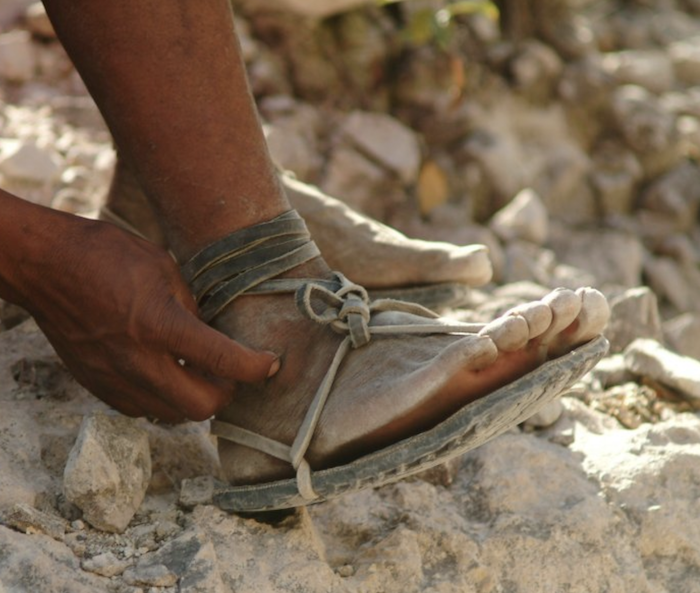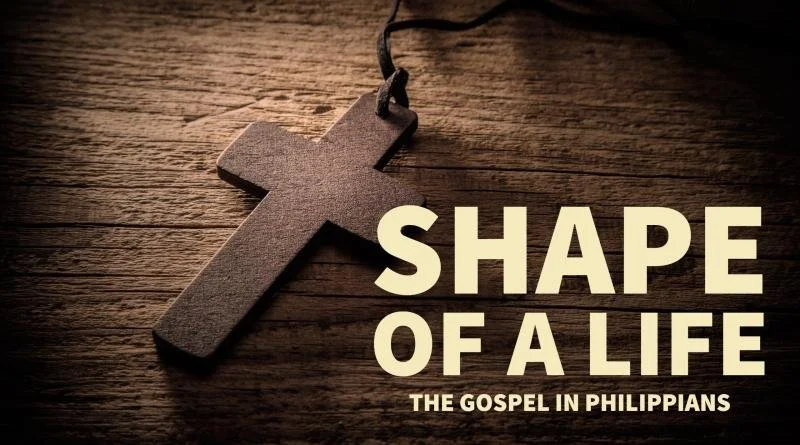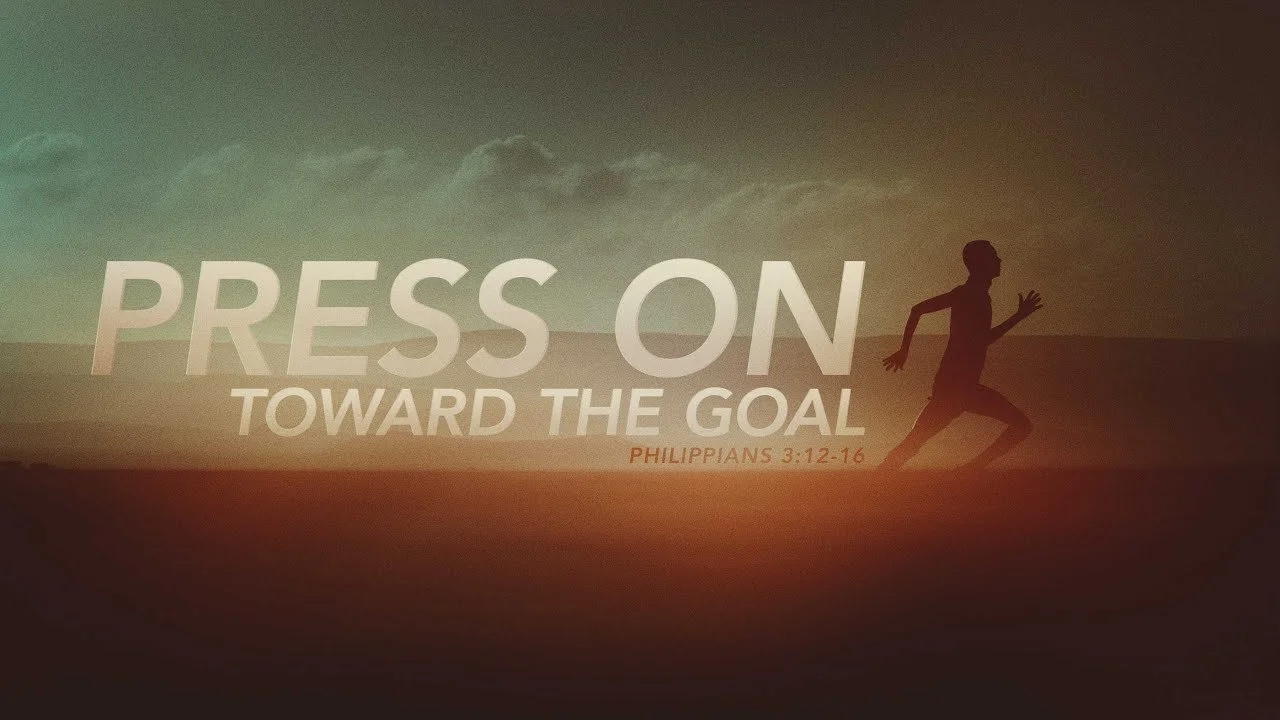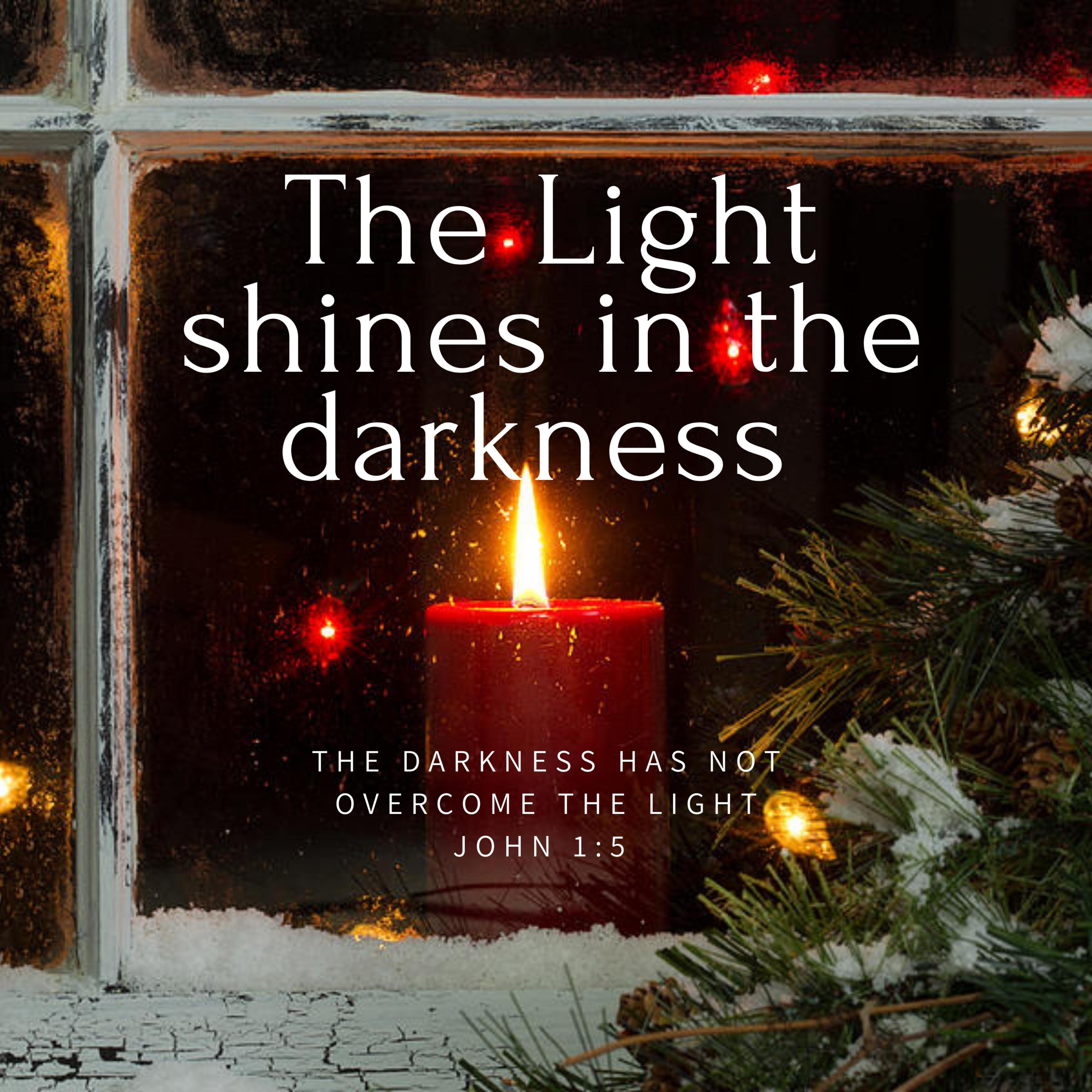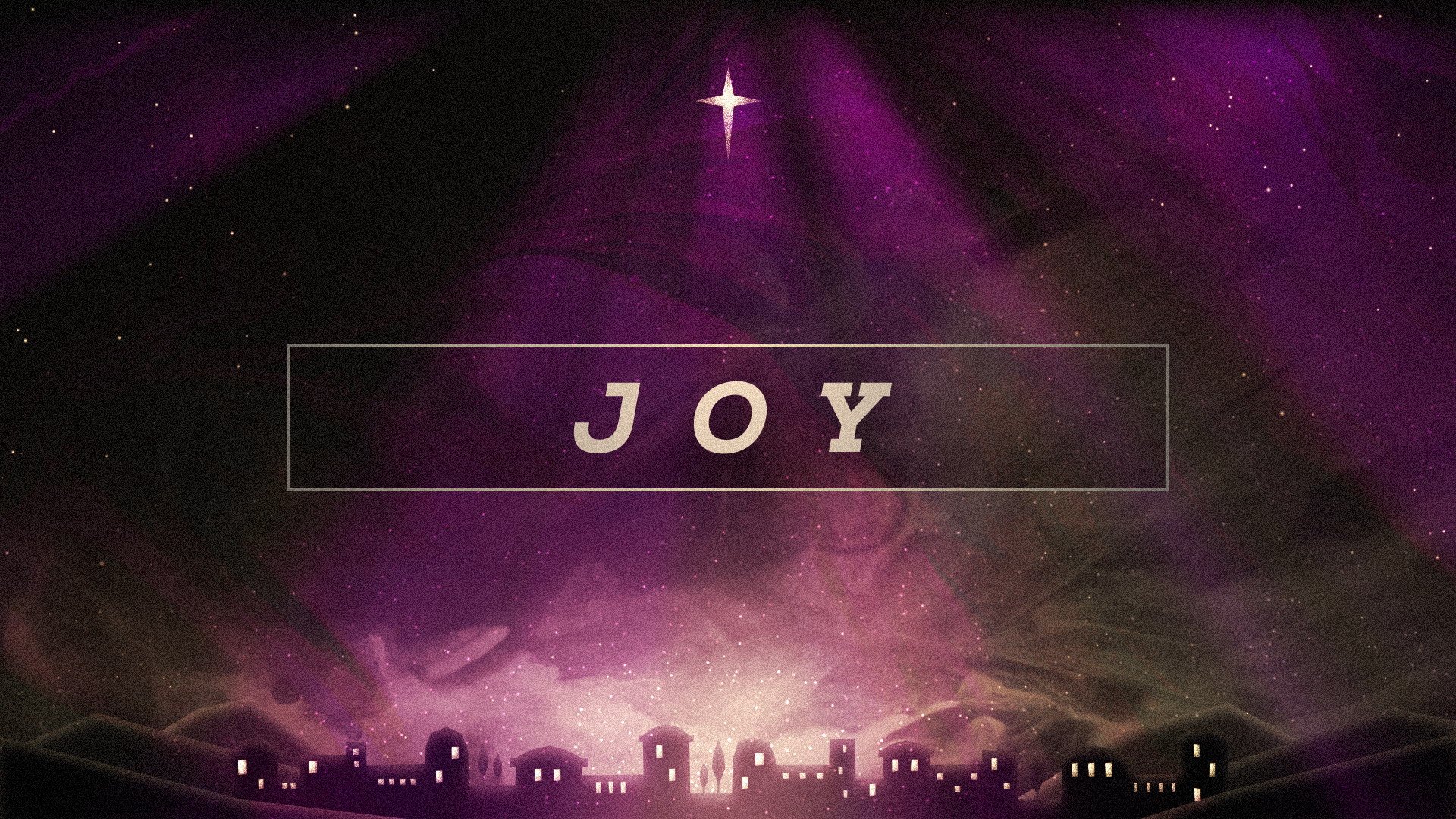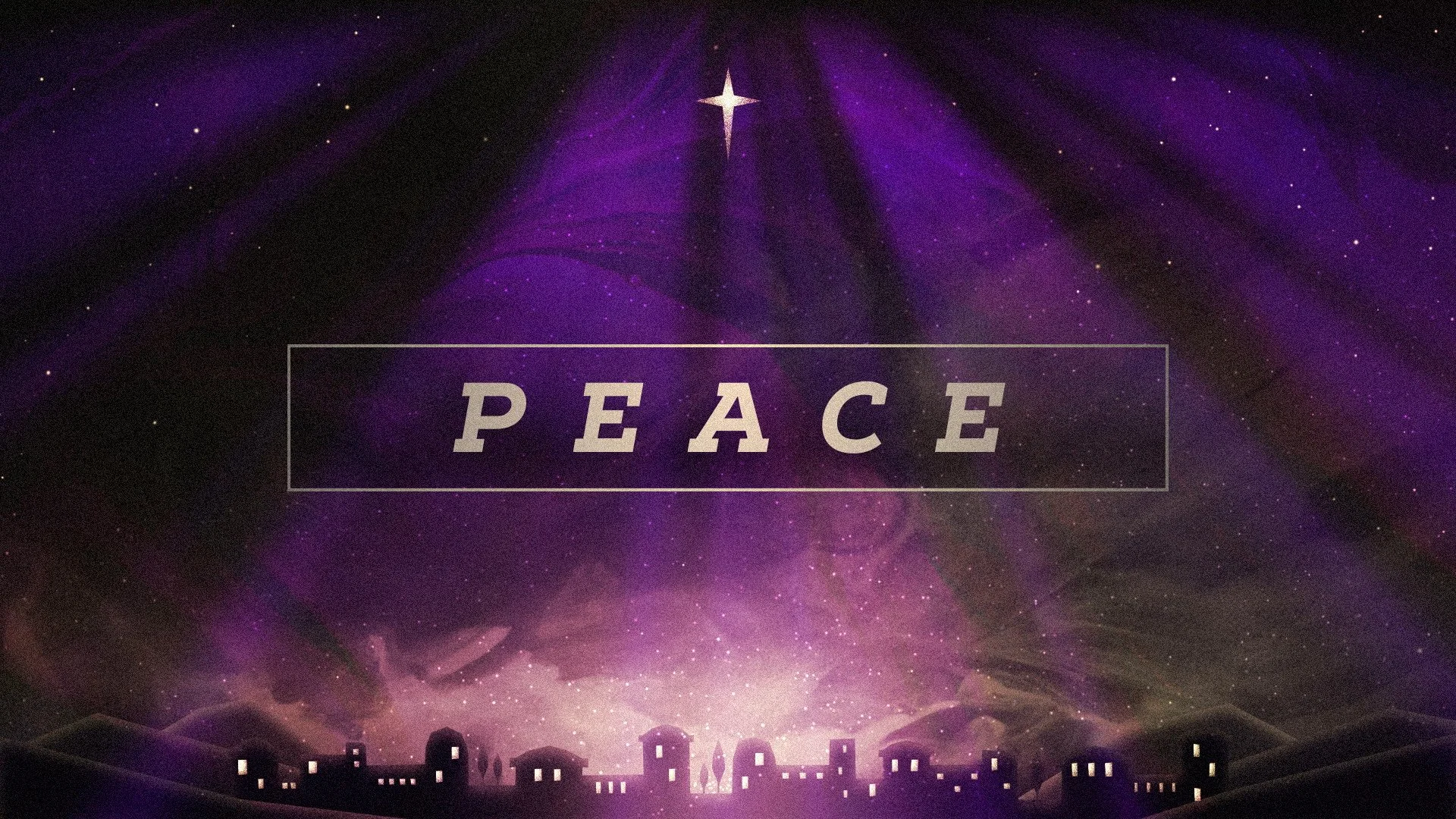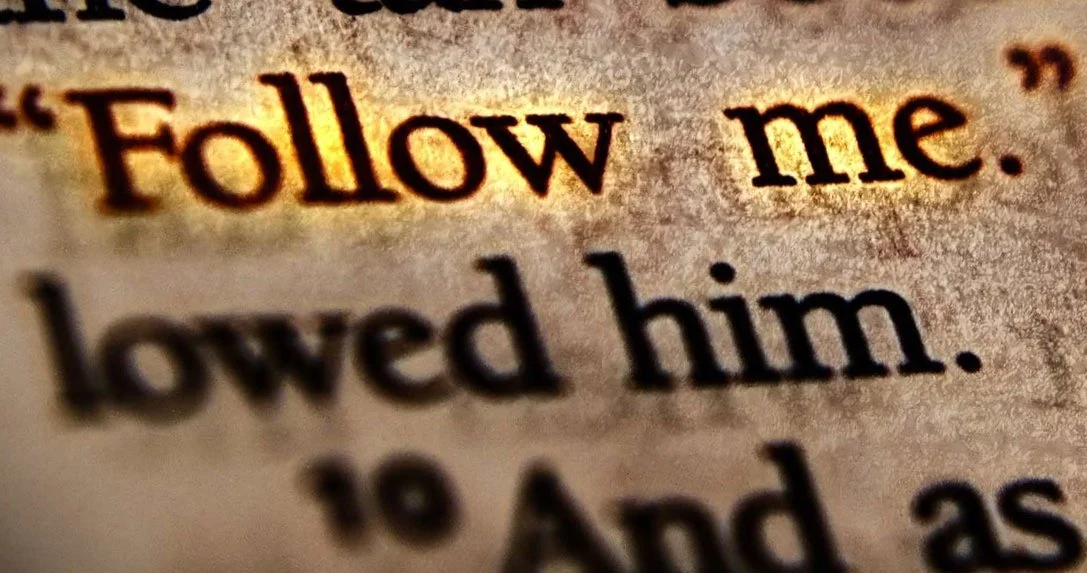Step Toward God - Developing Habits
How will you take steps toward God this year?
This is the foundational question for the other two steps we are taking. Steps toward God ultimately lead to steps toward one another and steps toward the world. If our steps toward God do not lead us toward his people and then lead his people toward the world then we must reexamine our time with God. When you read through the gospel accounts you see Jesus taking these three steps. He often goes off to solitary places to pray. He invests in his disciples (not just the twelve but he also specifically invested in three). Jesus then always has an eye toward the world and steps toward those who no one is willing to step toward. I believe his steps are guided by his time with God the Father. He begins his ministry with a 40-day retreat in the wilderness dedicated to prayer and fasting. He stays up all night praying before making big decisions. He wrestles with God the Father in prayer before his toughest actions.
His steps toward God the Father shaped his steps toward others and the world.
Developing the routines/disciplines/habits of spending regular time with God helps you stay oriented to where you need to go in life, what you need to do, where you need to direct your energy, and where you need to give concern. Regular time with God creates a place of discernment where the Spirit guides where you need to go. Bible study without silence and solitude with God often leads to interpreting the Bible to be shaped into your life. Creating disciplines of listening to God allows your life to be interpreted by scripture in a way that shapes your life into the narrative God. The other major implication of developing these practices and habits is that you then pass them down to your children.
This Sunday, we are going to look at how the Shema was intended to shape the life of God’s people. You can find some great resources on the Shema here.
The Shema is found in Deuteronomy 6:4-9 and is the bases for Jesus’s teaching on “The Greatest Command.” Take some time to read all of chapter 6 and let it examine your life. Moses is standing in front of God’s people at the end of his life. He has led them through the wilderness twice, trying to help them develop a relationship with the God who carried them out of slavery. This relationship is submission to the God who provides. That takes relinquishment of control and desire for power to then let God simply be God. Moses gives this command to God’s people to prepare them for where they are going.
I come back to this chapter in Deuteronomy often to reorient my life. Read through chapter 6 a few times and contemplate the implications. Here are some questions to help you prepare for Sunday:
Why is Moses concerned they will forget God?
Does your life look more like Israel in the wilderness or in the promised land?
Think about your day to day life. Where do you have to depend on God?
How would you rewrite 6:6-9 to fit your modern life?
In 6:20-25, how does Moses say to respond to the questions of your children? When children ask why their parents do the things they do, Moses tells them to share the story of God’s action for their people. This is what we do weekly around the Lord’s Table. This is the narrative Paul calls the church in Philippi to shape their lives after in Philippians 2:5-11. How well do you know the story of God’s action in your life that you can easily share it when someone asks you why you live the way you do?
Step Toward God - Know the One You Worship
Imagine standing out in the desert in a crowed listening to John the Baptizer proclaim the coming of the Kingdom. He is unconcerned about the attitudes of the ruling authorities, both religious and secular, as he condemns their wrongdoings and proclaims the coming Messiah. He speaks as one emboldened by God, not worried about what might happen to him. There is an energy in the air, an excitement that the moment might have finally arrived. John says, “among you stands one you do not know. He is the one who comes after me, the straps of whose sandals I am not worthy to untie” (John 1:26-27).
Can you imagine that moment? You begin to look around at all the ordinary people around you. One of them? Maybe you look at their feet to see if their sandals give something away. You go home and all night you ponder if you stood next to God’s anointed and didn’t even know it! You’re intrigued and you make the journey back out to see John again. As you listen to him preach his demeanor changes and his eyes get big, “Look, the Lamb of God, who takes away the sin of the world!” You turn to see the guy who shared his lunch with you the day before. You remember the feeling you had in the way he saw you and the joy in his generosity, but you didn’t think much about it. How could someone so ordinary be the promised Messiah? Imagine years later you meet one of Jesus’s disciples and find out that the one you shared a meal with was God in the flesh!
The first step we’re focusing on making this year is a step toward God. John the Baptized recognized Jesus for who he is because he had eyes to see. In his proclamation of Jesus’s identity, he doesn’t announce him as the Lion of Judah, a common title for the King. He points to him as the “Lamb of God.” In the hundreds of years of waiting and expecting the coming of the King, are you supposed to get excited for someone who is identified with dying?
When I am most honest with myself, I often want a god that is different than the God I have. I want him to smite my enemies, bring me prosperity and all my wants, and give me the power I deserve in this world. But that isn’t the God I have. The God I have is the one who breaks the systems of oppression, violence, and brokenness to bring redemption and reconciliation to a creation that he loves deeply. God often acts in ways that surprises his people. This is the God we are called to worship.
As you plan to take steps this year toward God, wrestle with these questions:
Where do you see God in ordinary places and people? Where do you struggle to see God? Pray – Lord, give me eyes to see.
Take time to draw a picture of God or write a description of who God is to you. What does this tell you about your view of God? Does this view match what you see in Jesus? Pray – Lord, give me eyes to see.
What is one small step toward God you can make this year to create space to develop your eyes to recognize God around you?
Years ago, I was reading the book Simply Christian by NT Wright and I came across these two sentences at the beginning of his chapter on worship. They gave me pause and have stuck with me ever sense: “When we begin to glimpse the reality of God, the natural reaction is to worship him. Not to have that reaction is a fairly sure sign that we haven't yet really understood who he is or what he's done.”
This Sunday we are going to turn our attention to one of the most spectacular worship scenes in the Bible – Revelation 4-5. Take some time this week to read these two chapters.
What do you see going on?
What gives cause for worship?
Where in this life are there doors standing open in heaven for us to see God’s glory?
What does it mean to be in the Spirit?
Jesus is the one who is worthy of opening the scroll and sharing the end of the story. How does knowing the end of the story change your perspective of what happens here and now and lead you into a place of deeper worship?
Have the Same Mindset as Christ Jesus - Philippians 2:1-11
When Jesus calls you to follow him, he calls you to act like he acts. The What Would Jesus Do (WWJD) bracelets were popular back when I was in high school and mostly became a comment to throw at someone who was acting out of line with Jesus. They’d do something wrong, and we’d say, “WWJD?” It is difficult to find parallels between what Jesus did in the gospels and what we were dealing with as high school boys. You see someone eating by themselves in the cafeteria, “WWJD?” That’s when we took one of their friends and prayed over them that God would multiply their friend group. Ok, that never actually happened, and it is a silly example of my point.
When we examine the life of Jesus, what are some key principles to apply to our lives to become more like him? Do these principles apply to every situation in life?
When Paul writes to the church in Philippi, he looks to shape them into the image of Christ. The task of the Apostle, Pastor, Elder, Preacher, Minister, etc. is to know the story of Christ in such a way that they help the church become like Christ. Paul was transformed by Christ. He was once one way, then he met Christ, and now he is different. For Paul, I don’t think this transformation was limited to his Damascus Road encounter. He demonstrates a continual transformation where he can continually look at the changes in his life. He then turns to the church and calls them to undergo the same transformation. He is able to stand before the church and say, “Follow my example…” (Phil 3:17; 1 Cor. 11:1). Paul forms himself to the image of Christ and has the same expectation for the churches under his care, not just the individuals within the church but the church, as a whole, in how they act toward one another.
Paul reaches into their songbook (metaphorically) for a guide to shape the church into the form of Christ. We find that early church hymn in Philippians 2:5-11. Before getting to the hymn, he gives the call, “conduct yourselves in a manner worthy of the gospel of Christ” (1:27). What is the gospel that forms you as a Christian? As we’ve talked about in other lessons, the gospel is bigger and more encompassing than “Jesus died so that I don’t have to.”
What other aspects of the gospel do you see in the hymn that Paul reaches for?
Read Philippians 2:1-11 a few times this week and wrestle with these questions:
What is Paul calling the church to in how they live towards one another?
What areas of your life do you seek your own interests rather than the interests of others?
In what ways do you need to lay down power that you have so that you can better serve others?
Looking at v9-11, how does knowing that God will glorify Jesus allow him to take a position of humility while being with humanity? How does that faith play out in your life today?
Press on in Your Walk with Christ
We’re focusing this year on making disciples by first going back to the basics of being disciples. The journey of walking with Christ is one of continually coming back to the basic steps of what is means to follow Jesus. Throughout this year we will focus on what Jesus is calling us to in our personal walk with him, as a community of believers, and as those he sends into the world. I want to encourage you to make plans this year to take steps in your walk with Christ toward growth in three key areas: toward God, toward one another, and toward the world.
This Sunday our focus will be on Philippians 3. To prepare for the lesson on Sunday, spend time reflecting on this chapter of Paul’s letter.
3:1-6 – What does it mean to boast in Christ? What does a life look like that is centered in boasting in Christ? We celebrate a conquered Messiah from the world’s point of view, but we know he is victorious. If we celebrate one who allowed himself to lose, what does boasting in this Messiah look like for us?
Paul lists off his credentials for confidence in v4-6. He has a lot of identity markers he could add to this list that make him great. He was a Roman. He was visited by the Resurrected Christ. He has an even longer list in 2 Corinthians 11. Take a moment to list off some of your identity markers that give you status in the world. I’ll give a disclaimer that none of these markers are bad things. Paul didn’t stop being a Jew, a Pharisee, or a Roman. Keep your list handy as we move to the next section.
3:7-11 – What does it mean to know Christ in such a way that your other identities take a back seat? In the understanding of the world, these identities draw tighter and tighter circles for you to live within. Paul was a Roman, a Jew, and a Pharisee. His circles of exclusion get smaller and smaller. The world places value on these circles but Christ calls us to move freely from them. In 1 Corinthians 9:20-22, Paul freely moves throughout the various circles of the world because he let Christ redefine how his circles worked. In what ways does knowing Christ allow you to draw a bigger circle that includes others? How does your identity look different when following Christ?
3:12-14 – Perfection has not yet come. This means you must keep moving forward with Christ. You must keep walking toward the resurrection. Christ has called us forward. What identities of the world are holding us back?
3:15-21 – Paul calls the church in Philippi to step into maturity. What does maturity look like based on all we’ve discussed up to this point? We’ve already obtained our identity in God through Christ. Now, let’s live up to that identity. What steps do you need to make this year to further be transformed into this identity in Christ?
Paul says that those who focus on earthly things have a destiny with destruction. He contrasts this with citizenship being from heaven. How does this contrast reorient your identity here in the world? Does it challenge the value of your other identities in this world? Look back at your list. Which identities get in the way of you fully knowing Christ? Another way of wrestling with this question – which identities get in the way of you seeing Christ in others who do not share that same identity?
Christmas Light
December 21 is the winter solstice, the darkest day of the year. There are different traditions around the world where the god of darkness and the god of light are in a battle together. It is at this point of the year that some cultures in the northern hemisphere would light town bonfires and place candles in their windows to encourage the light god in his battle over darkness. As the villages lit their candles, they anticipated the celebration of the winter solstice where the tides of battle change and light begins to overcome darkness. When the early Christians encountered these traditions, they embraced the celebrations and shared the good news of the light that came into the world to overcome darkness (John 1). This is where the idea behind Christmas lights comes from. “The light shines in the darkness, and the darkness has not overcome it” (John 1:5).
The light shining into the world came to expose the world for what it is and reveal what God intended for the world to be. When we read the birth narratives in Luke’s Gospel, he follows a theme of “great reversals.” These reversals turn worldly greatness on its head and lifts up the lowly. The priest is faithless and silenced. The young woman is faithful and given a voice. The women, rather than the men, are called upon to name their sons. The women are the exemplars of faithfulness. Those who are expected to be great are lowered. Those who are lowly, are lifted up. The ways of the Kingdom of Light look different than they ways of the world. When light shines in the darkness, the darkness does not understand it.
Jesus came into the world to redeem it back to what God intended for it to be in the first place. The church is supposed to be the place where redemption is lived out: light shines in darkness. When Paul looks at the identity of people in the church of Galatia, he focuses on their identity in the Spirit rather than their identity in the world. Male or female? Christ. Slave or Free? Christ. Jew or Gentile? Christ. “All who were baptized into Christ have clothed themselves with Christ” (Galatians 3:26-29). These identities are covered in Christ in the church. When light shines in the darkness, the darkness does not understand it.
Go back to Luke 1:46-55 and read Mary’s song. What reversals do you find her celebrating? When she receives the good news of Christ coming into the world, she begins to see the world differently. Mary’s song may hit a strange cord with many of us. Take a moment to place yourself under Roman oppression for generations and oppressions and exile before that. You are part of a people who were regularly under the boot of another. This song rings differently for her. It is hard for me to fully embrace it because I have always been part of a dominate culture in the world and have never felt the underside of the boot. This song often brings humility and imagination to me for viewing the world through the light of Christ.
Take a moment to write a list of reversals you want to see in the world to bring God’s redemption. Talk about them as a family. Whenever you see Christmas lights as your drive around the city, pray for God’s light to shine in the darkness and bring about these reversals.
Advent Week Four - Love
“God is Love.” – 1 John 4:8
“A new command I give you: Love one another. As I have loved you, so you must love one another. By this everyone will know that you are my disciples, if you love one another.” – John 13:34-35
“Love the Lord your God with all your heart and with all your soul and with all your mind…. Love your neighbor as yourself.” – Matthew 22:37-39
“Dear friends, let us love one another, for love comes from God. Everyone who loves has been born of God and knows God. Whoever does not love does not know God, because God is love. This is how God showed his love among us: He sent his one and only Son into the world that we might live through him. This is love: not that we loved God, but that he loved us and sent his Son as an atoning sacrifice for our sins. Dear friends, since God so loved us, we also ought to love one another. No one has ever seen God; but if we love one another, God lives in us and his love is made complete in us.” – 1 John 4:7-12
Advent is a time to slow down and remember that God is at work in the world to redeem it and make it good again. When we live in this hope, we recognize that God is the only one who has the power to redeem this world. We can let go of any fleeting hope others might offer us because we know that God is the same yesterday, today, and forever. Governments will come and go. Economies will rise and crash. We will continue to age and become weak. And cultures will continue to shift and develop. The only things that is constant is God. When we fully rest in this hope, we are free to love in the way God loved us.
Scripture is full of passages about love. The word itself takes on different meanings. Without getting into the weeds of the different forms of love, I want to look at the definition of love as defined by God’s action of love we are called to model. In the form of a baby, love entered this world to walk among us. Love is the blueprint for how we should live and the blueprint walking among us shows us how skewed our blueprints have become. When we stand next to love embodied, we see where the blurred lines of our lives need sharpening so we can build better.
When it comes to following Jesus, we tend to overcomplicate things. He simplifies it for us. Love God. Love others. And really, the second is a clarification of the first. You are going to show your love for God by how well you love others. I’ve found that when I stop to make a list of the people I hate, there isn’t really anyone on the list. I would be too quick to pat myself on the back and claim I’m living up to Jesus’s call to love God. The next temptation is to evaluate how I interact with others and assume that my lack of harshness means I showed love for them.
As you get to know Jesus through the Gospels and see how John sketches it out in 1 John 4:7-21 (not to mention Philippians 2:1-11), we see what love for others looks like. Jesus loved people where they were. He loved them fully. He allowed his love to invite them into transformation. Not everyone responded to that invitation but he loved them all the same. When hate put Jesus on the cross, love forgave them even in agony. Love is a profound response to others because hope rests in something other worldly.
We are free to love as Christ loved because we have our hope and rest in God. No one is a threat to us when our hope is in God. No one. Not one. When we rest in hope, we are free to love no matter what a person does or is doing to us. This kind of love is a muscle that must be worked out in community together so we can more perfectly go and love the world.
Spend some time in prayer asking God to reveal to you who you struggle to love the most. Ask that he put you in situations where you can love. Ask God to give you a different perspective of those people so that you can see where they are coming from in the world.
As you go throughout your day, pay attention to how you respond to groups of people, those in the media, etc. If you find yourself tensing up, calling people names (even in your head), or getting worked up over the actions of others, take these things as signs of the Spirit nudging you to lean into love and find God’s heart for those people.
When we stop to look at Jesus in the manger and see the cross in the distance, we realize that we are not called to love better than the world. We are called to love differently all together because love wins in the end.
Advent Week Three - Joy
In the opening chapters of the Gospel of Luke, the story of Jesus’s birth is seasoned with expressions and expectations of joy. Zechariah is visited by an angel promising the birth of a son, John the Baptist, who will be a “joy and delight” to him and he will bring rejoicing to many. John leaps for joy in his mother’s womb when she heals the sound of Mary’s voice. Mary then expresses her joy through song, saying her spirit rejoices in God. At the birth of John, their neighbors gathered to share in their joy. Finally, joy is last mentioned with the first people to hear the good news of the birth of the Messiah. The group of “nobodies” called shepherds were living in the fields nearby, keeping watch over their flocks. An angel appeared and the glory of the Lord shone around them. These “nobodies of Bethlehem” got to hear the words every Jew had been longing to hear for hundreds of years, “I bring good news that will cause great joy for all the people. Today in the town of Davis a Savior has been born to you; he is the Messiah, the Lord” (2:10-11).
The third Sunday of Advent focuses on Joy. When our hope rests in what God has done, is doing, and will do in the world then we can rest and find joy in every circumstance. Joy is a hard concept to understand and often gets mistaken for happiness. Happiness is often dependent on positive situations, things, and all going well. Joy is much deeper and shines through even in the worst of circumstances. Our culture is obsessed with, what our founding fathers call, “the pursuit of happiness.” But this pursuit has left us with a self-centered and shallow culture that chases the next big thing to make us happy. We live in a culture that desperately needs examples of joy that is rooted in something deeper than trivial happiness. Our culture needs a people rooted in hope to show them what pure joy looks like no matter what goes on in the world.
Joy is a muscle that is developed, not by focusing on having joy per se, but by focusing on others and developing other virtues in your life to bring about joy. Joy comes from gratitude, humility, reframing situations to see other perspectives, and compassion to name a few. When we develop a life focused on others, we are more capable of resting with joy because we do not see others as responsible for our happiness.
The shepherds were going about their life, sleeping in a field, when the reason for joy was shone around them. How was their life changed from that moment forward? They went back to sleeping in their fields in their low status in their culture. But how was their life different from that moment forward? How does receiving the good news of Jesus’s coming bring you to a place of joy? How does this good news reshape everything in your life? Have you allowed it to reshape everything in your life?
“The joy of the Lord is your strength” – Nehemiah 8:10
“Always be joyful. Always keep on praying. No matter what happens, always be thankful, for this is God’s will for you who belong to Christ Jesus.” – 1 Thessalonians 5:16-18
“Rejoice in the Lord always. I will say it again: Rejoice! Let your gentleness be evident to all. The Lord is near. Do not be anxious about anything, but in every situation, by prayer and petition, with thanksgiving, present your requests to God. And the peace of God, which transcends all understanding, will guard your hearts and your minds in Christ Jesus.
Finally, brothers and sisters, whatever is true, whatever is noble, whatever is right, whatever is pure, whatever is lovely, whatever is admirable—if anything is excellent or praiseworthy—think about such things. Whatever you have learned or received or heard from me, or seen in me—put it into practice. And the God of peace will be with you.” – Philippians 4:4-9
Try something for me this week. End each day by reflecting on the events throughout the day. Give thanks for every good thing that happened. Examine the not so good things that happened and ask God where you can give thanks for those situations.
End your time with prayer:
“Father, you are my hope. I hope in what you have done in the past, are doing right now, and will do in the future. You are the God of all things and are in control. Let me hope be in nothing else. From this hope, grow in me the joy I need in every circumstance so that the world will see that my hope is built on nothing other than Jesus Christ. Change my life with the joy you sent in the world through Jesus Christ. Amen.”
Advent Week Two - Peace
The season of Advent begins with a focus on the hope that we have in God’s action. This hope is deeper than optimism. It is a conviction that requires faith that God will act in the way he says he will. Advent is a season of expectation where we refocus on the coming of Jesus. It is a reminder that Jesus came in the form of a baby, fulfilling the hope of God’s people, and will come again to bring redemption to this world. Advent reminds of where our hope is and should shape our lives to be people of hope. Hope in anything other than God is “shifting sand.” Hope is nurtured by relationships in community of people who share the same hope. When we lean into hope, no matter the situation, we cultivate the soil of our lives.
What grows out of this soil? What does a person look like who lives out of this hope?
Out of the soil of hope grow peace, joy, and love. In last Sunday’s sermon (11/28) we talked about being people of hope. This Sunday we will discuss what it means to be people of peace because we live in hope. We will look at joy and love in the weeks after.
A quick survey of the New Testament paints a clear picture of how we are to live as people of peace:
John 16:33 – Jesus promises peace because he has overcome the world. This is peace born out of hope.
2 Thessalonians 3:16 – The Lord of peace is with us so we have peace in every way.
1 Peter 5:7 and Philippians 4:6 – We have a God who receives our anxiety so we can be at peace.
Colossians 3:15 – Peace should rule our hearts because we are together in one body. Gratitude is the outgrowing of this peace.
Matt 5:9, 1 Peter 3:11, Hebrews 12:14, James 3:18, and Romans 12:18 – Peace isn’t just something you feel, or a state of being, but something you cultivate and strive for with every person in your life. Blessed are the peacemakers. They will be called “sons of God.”
These verses only scratch the surface of what the Bible says about the peace we are to have in our hearts and the peace we are to offer the world. Spend some time with these passages this week and let the Spirit examine your life.
Where in your life are you struggling to be at peace? How does your hope in God bring peace in those areas?
When our hope is centered on things other than God, we stand on “sinking sand” (as the old song says), and we will not be at peace. If our hope is in the government, a certain ideal of national identity, or a certain view of history, peace will not flow out of us when those things are challenged. When our hope is in the economy – inflation, stock drops, and gas prices send us into despair.
What does peace look like for people who pledge their allegiance to a King and a Kingdom that is bigger than any nation or economy?
As people who live with peace, because of the hope that we have, we are to be people of peace in a world of chaos. When our hope is secure in God, we are able to let go of our expectations and desires for how we think the world should be and fully be at peace to bring about hope for the world as God intends for it to be.
“If it is possible, as far as it depends on you, live at peace with everyone.” – Romans 12:18
Follow Me
“Follow me.”
It is hard to imagine how these words rested on the ears of each person who looked into the eyes of Jesus and were truly and magnificently seen for the first time. For the Jewish men who heard this call, they had already missed out on following a Rabbi and took on their family trades. For the women who heard the call, they never had an opportunity to follow a Rabbi. The one thing most every Jew had in common at the time of Christ was expectation. They were all expecting the Messiah to arrive and bring liberation and healing to their people.
There was a wild man out in the desert. A prophet type, calling God’s people to repentance, especially the religious leaders. He had fire in his speech, but he gave hope that the One was coming. He kept quoting Isaiah 40:3 to respond to questions of his identity, “A voice of one calling: ‘In the wilderness prepare the way for the LORD; make straight in the desert a highway for our God.’” Talk of the coming Messiah was on everyone’s lips.
“Follow me.”
There is an excitement of expectation in the air. Your people have been waiting for liberation for hundreds of years and it is finally coming in your lifetime. It’s all you can think about as you wash your fishing nets. It consumes your mind as you receive taxes from your people on behalf of the Romans. As you go about your daily life, your heart is full of expectation that God is about to do something. One day you look up from what you are doing, and you catch eyes with the one they call Jesus. His eyes are filled with earnest compassion, joy, and love. He sees you in a way that no one else has, the true you. He sees you in a way that you’ve never fully seen yourself. He then extends the invitation that catches you off guard and has potential to change your life.
“Follow me.”
For the men who received this invitation, they had missed the opportunity to follow a Rabbi and had to move into the family business or some other kind of trade. They were far from the best and brightest, so they were not acceptable for learning from a Rabbi. For the women who received the invitation, they never were given the opportunity to learn from a Rabbi. Why me? I’m not “following” worthy. I have a spotted past. I am an ignorant day laborer. I’m a terrorist. All my countrymen hate me because I sold out to the Romans. I am a woman. All the excuses rise to the surface at the invitation. But he continues to look at you with compassion, joy, love, and friendship.
“Follow me.”
Where were you when you heard this call for the first time? I remember the first time I came to belief. I don’t remember the first time I heard the invitation to follow Jesus, but I remember the many times that have come after. Jesus wants you to follow him. There are times I’ve settled for believing in him and going on about my life. I don’t know how many times I’ve missed Christ’s call to follow him, to walk with him, to live like he lived in his interactions with others.
Start each day with prayer asking God to help you see yourself as he sees you then ask for your eyes and ears will be open to hear the invitation of Jesus, “follow me” as you go about your day.
For your reflection – “Jesus invites me to follow him every time…”
I am tempted to get angry over people’s opinions.
I want to respond to hate with anything but love.
I fail to see the struggle of others with compassion.
I am too quick to speak and too slow to listen.
When I build walls between me and others rather than bridges.
When I hand my peace and security to worldly power.
What would you add to this list to help you pay attention to Jesus’s invitation?


